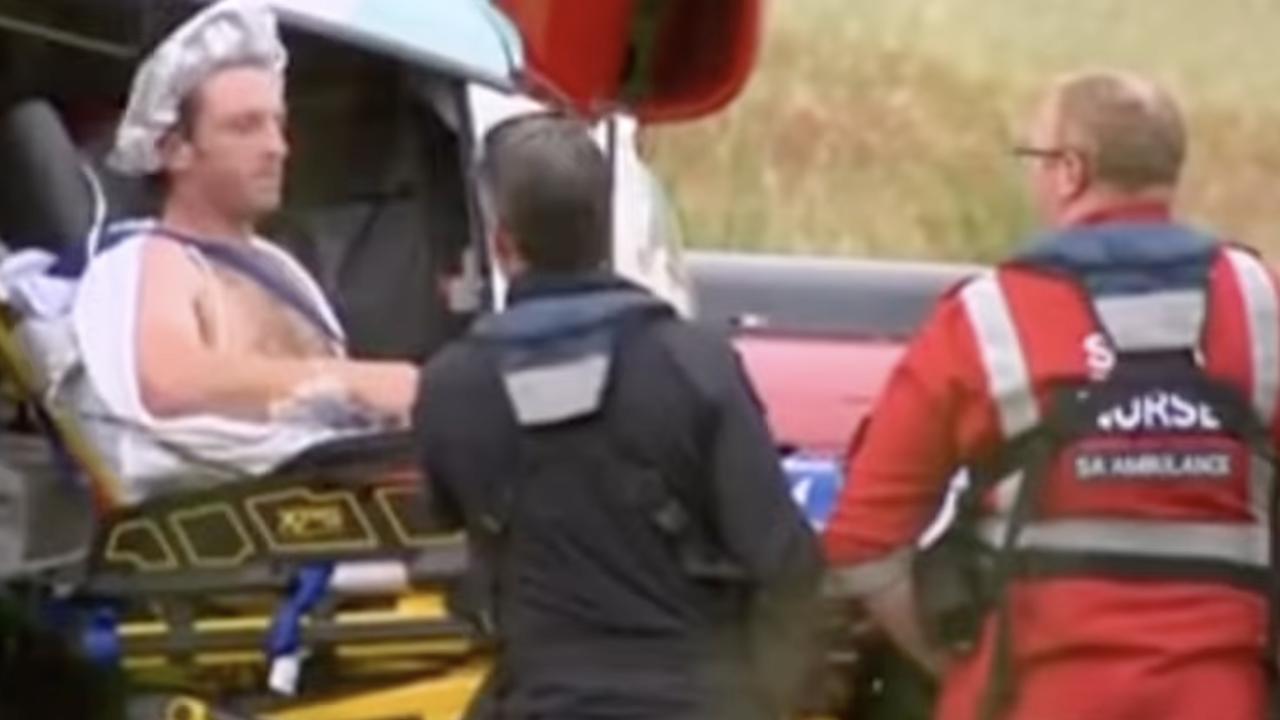Tiger Temple under investigation for breeding tigers for an illegal animal parts trade in Thailand
POLICE are investigating Thailand’s famous Tiger Temple over claims monks illegally traded animal parts. WARNING: Graphic content
THAI police are investigating the Tiger Temple over claims its Buddhist monks were feeding an illegal trade of wild animal parts, as the tourist attraction was shut down.
The scandal surrounding the temple, where wildlife officers seized 137 tigers last week, has cast religious sanctuaries for animals in a bad light.
A total of 40 tiger cub corpses were also found in a freezer at the temple during raids by officials from Thailand’s Department of National Parks. The remains of another 20 cubs were found stuffed into bottles and jars.
WARNING: Photos may be distressing for some readers
Animal protection officials have already filed criminal complaints against five suspects, including monks, for illegally possessing endangered animals or animal parts.
Officials said other senior monks could also face criminal charges, as they try to confirm if the Tiger Temple was involved in the illegal trade of endangered animals and if tiger cubs were bred for parts to be sent to China and other countries.
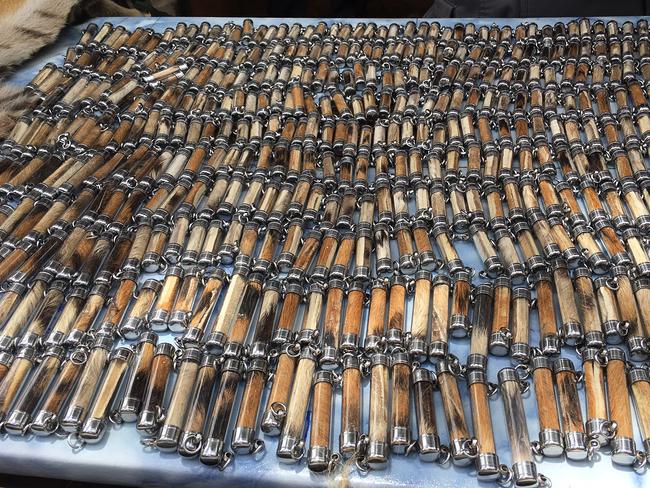
“It’s too soon to reach that conclusion just yet,’’ said the deputy director-general of Thailand’s Department of National Parks, Adisorn Nuchdamrong.
‘We need to talk to the suspects and expand our investigation. We found food supplements apparently made from tiger parts, young antlers from other animals and a box and cans with labels in Chinese. This could be connected to distribution. But it’s still unclear whether they killed those tigers.
“It might be that they were delivered to the temple for trafficking and died. They are worth more when trafficked alive, so killing them doesn’t make sense.”
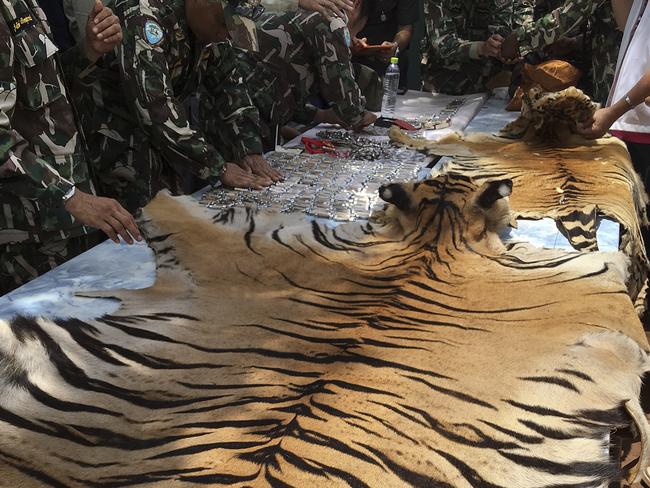
The Buddhist temple in Kanchanaburi province, west of Bangkok, has become a tourist destination where visitors come and regularly take selfies with the animals and feed them.
Since the raids, the Tiger Temple has vehemently denied being involved in the illegal trafficking of animal parts, and denied mistreating animals in its care.
A post on the Tiger Temple Facebook account addressed claims of illegal trading and animal welfare issues back in March this year.
It stated that the tigers already had a high infant mortality rate and those tiger cubs who died were frozen instead of being cremated.
“There are rumours and allegations constantly being spread on the internet about Tiger Temple. For years many were left unanswered, as the Buddhist way is to keep silent and not engage a fight. However now with a lot more focus on the Temple, it is time to respond,” the Facebook statement read.
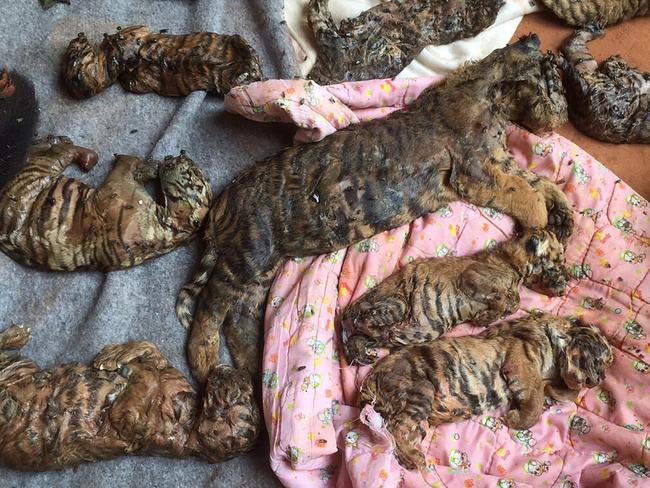
“Cubs do occasionally die for various reasons … in the past, as per Buddhist customs, these tiger cubs were cremated,” the Facebook post also said.
“In 2010, the ex-vet of Tiger Temple changed this policy. Instead of cremation, the deceased cubs were preserved in jars or kept frozen.”
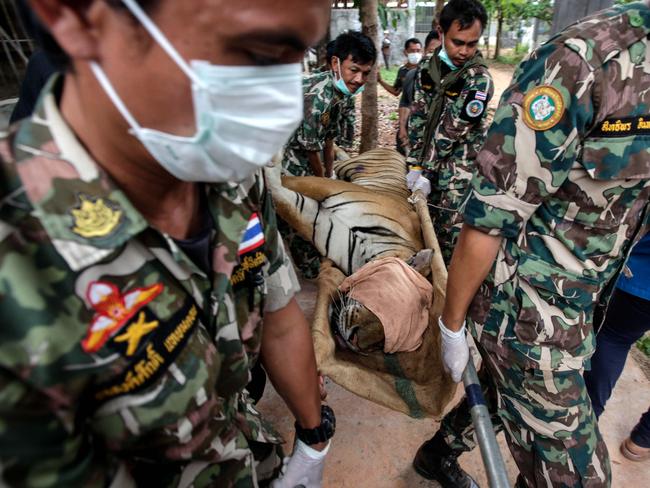
“We have documented all the deaths from 2010 and have photographic evidence of them still being within the temple.”
Many conservationists and animal rights activists have believed the temple’s self-appointed mission to shelter tigers is misguided at best and that the tigers were mistreated to ensure their docility.
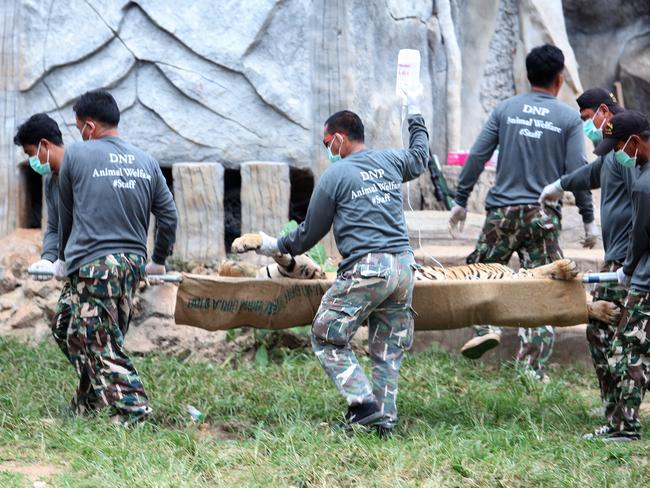
The temple officially opened in 1994 near a wild tiger habitat. Its first cub was found by villagers in 1999, and cubs have been taken to the temple since then. The Buddhist monks have prevented moves to close the temple, which currently remains closed to the public.


